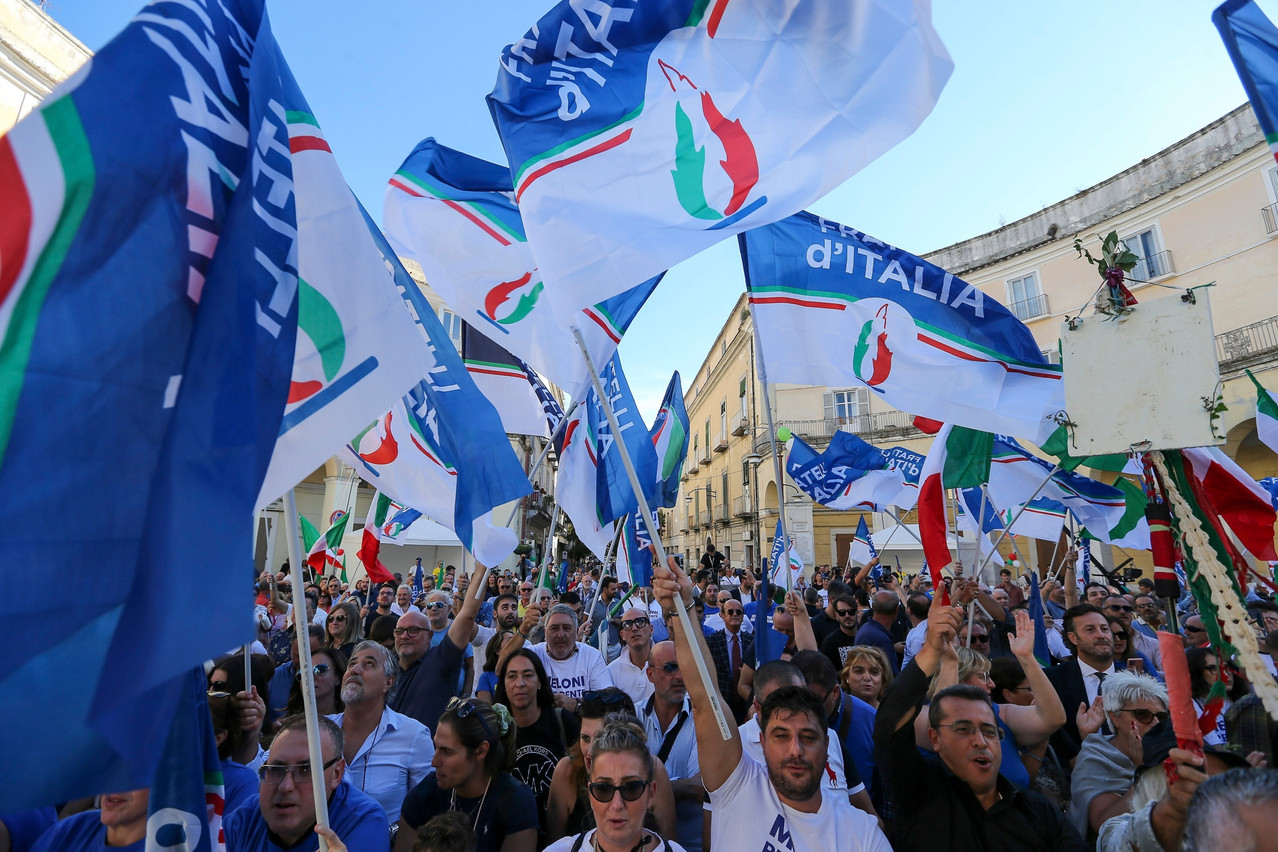Giorgia Meloni leads the Brothers of Italy party, setting her up to become the new government’s prime minister, and therefore the first woman to hold the position in Italy. The 45-year old politician describes herself as “a woman, a mother, Italian, Christian.” Her views on subjects such as immigration, LGBT and abortion rights align themselves with those of Hungary’s Viktor Orban. A Eurosceptic, Meloni previously also counted Russian president Vladimir Putin among her ideological models, a position she has following his attack on Ukraine.
The decision of voters has to be respected, Asselborn said in an interview with RTL on Monday morning. The Luxembourg minister said “it is already good” that Meloni said she does not want Italy to leave the EU, and that she accepts EU rules. However, he expressed some criticism too, stating: “Meloni says her party has nothing to do anymore with the fascism of Mussolini, but they still have the torch of the dictator in their logo.”
“We hope that there won’t be any movements in Italy--the third strongest economy in the Eurogroup--that will harm Europe,” Asselborn said.
Delano reached out to the ministry of foreign affairs for further comment.
Low voter turnout
As expected, Meloni’s far-right party won the national elections. As between 22-26% of those who turned out voted for the Brothers of Italy party, and Matteo Salvini’s Northern League gathered support from 8.5-12.5% of voters, a right-wing coalition led by Meloni is more than likely. Silvio Berlusconi’s Forza Italia, which could also be part of the coalition, got between 6 and 8% of the votes.
In contrast, the Democratic Party only got 17-21% of votes, while the Five Star Movement--whose refusal to vote on a relief bill had in part pushed former prime --won between 13.5 and 17.5% of votes.
Voter turnout this election was at historically low levels, with only 64% of the eligible population participating--a stark contrast with the high participation rate of the 70s (over 90% in 1979) and 90s (close to 90%). According to news site , voter disaffection and fatigue, as well as an ever-changing party landscape are to blame for the poor turnout.
